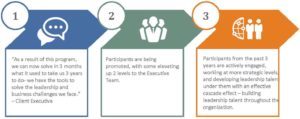The job market has been undergoing a significant shift in recent years due to a shortage of employees. This shortage has been caused by a variety of factors, including an aging workforce, increased demand for skilled workers, and changes in technology. As a result, employers are starting to re-evaluate their job criteria and benefits to attract and retain talent.
Employers are continuing to offer higher salaries and bonuses to attract and retain top talent. They’re also still providing standard comprehensive benefits packages, such as health insurance, retirement plans, and paid time off. Employers are even offering sign-on bonuses to entice workers to join their companies.
But companies are now starting to radically reconsider job requirements long considered standard practice. Requirements such as a bachelor’s degree, passing a drug test, or being at least 18 are now all on the table for softened language in job descriptions. It must be noted that these considerations are highly dependent on the job function and the needs of direct managers.
One of the most significant changes in job criteria is the emphasis on skills and experience. Employers are no longer solely focused on degrees and formal education but are instead looking for candidates with specific skills and experience relevant to the job. This trend is especially prevalent in industries such as technology, where the rapid pace of innovation requires a constant upgrade of skills. Companies are now investing in upskilling programs to train employees on the latest technologies, rather than solely relying on formal education.
 We’re also seeing an increased focus on career development and growth opportunities. Many workers today are looking for jobs that provide opportunities for advancement and skill-building. Employers are responding to this by offering coaching programs, mentorship opportunities, and professional development programs.
We’re also seeing an increased focus on career development and growth opportunities. Many workers today are looking for jobs that provide opportunities for advancement and skill-building. Employers are responding to this by offering coaching programs, mentorship opportunities, and professional development programs.
Providing opportunities for employees to take on new responsibilities and lead projects can also help keep them engaged and motivated in their jobs.
Another significant change in job criteria is the increased importance placed on soft skills. Employers recognize that technical skills are no longer enough and are looking for employees who possess strong communication, problem-solving, and critical thinking abilities. This is because soft skills are essential for successful collaboration and teamwork, which is crucial in today’s fast-paced work environment.
One of the most notable changes is an increased focus on flexibility. Many workers today are looking for more flexibility in their jobs, whether that means working remotely, setting their own schedules, or having more control over their work environment. Employers are responding to this by offering flexible scheduling options, work from home arrangements, and even co-working spaces for employees who need a break from the home office.
Another trend we’re seeing is an increased focus on mental wellness benefits. The pandemic has made it clear that taking care of our mental health is just as important as taking care of our physical health. Employers are offering more resources for mental wellness support, such as therapy services, meditation classes, and mental wellness days off. They’re also making efforts to create a positive and supportive work environment to reduce stress and promote well-being.
The employee shortage in 2023 is driving significant changes in the job market, particularly when it comes to the benefits that employers offer. With more positions available than ever before, employers are getting creative with their offerings to attract and retain top talent. This means a greater focus on flexibility, career development opportunities and mental wellness.
By prioritizing these benefits, employers can create a positive and supportive work environment that attracts and retains top talent for years to come.






